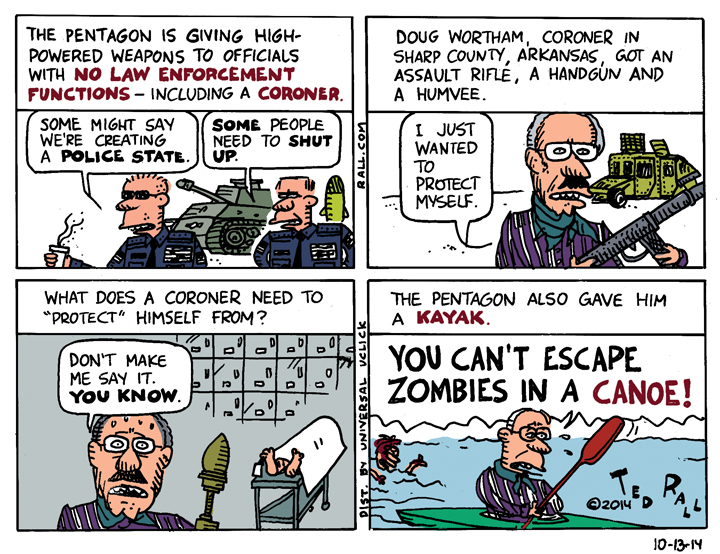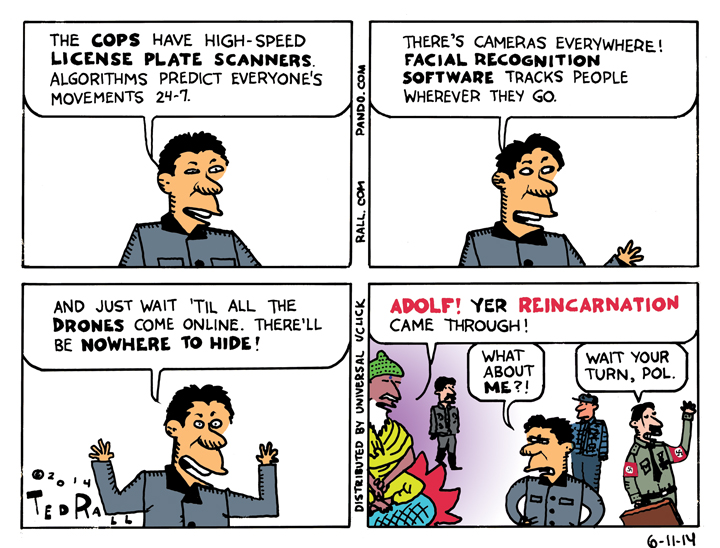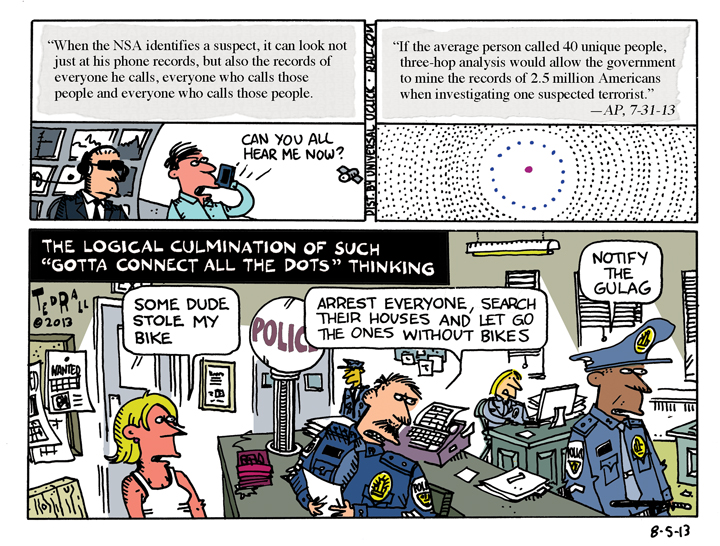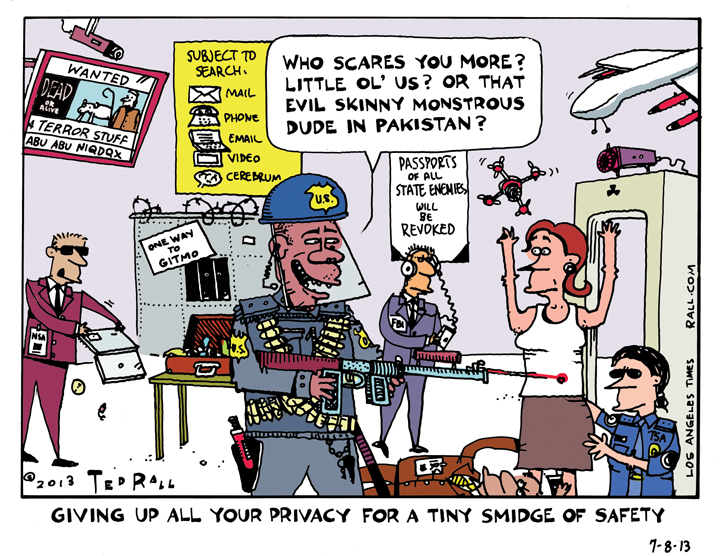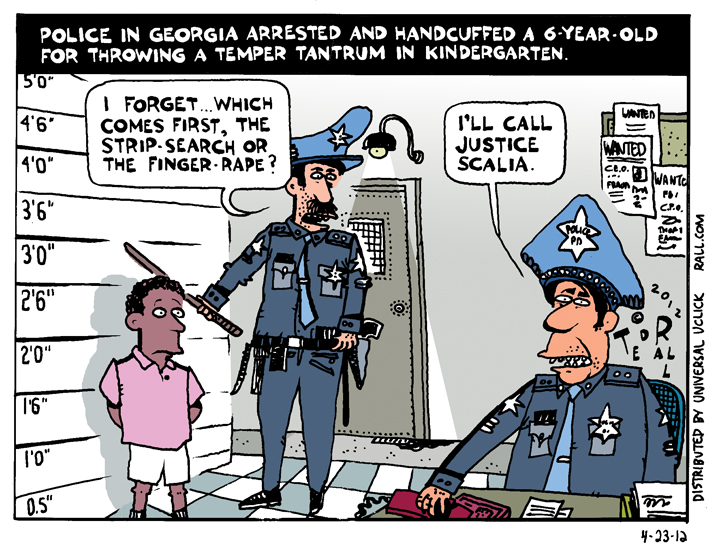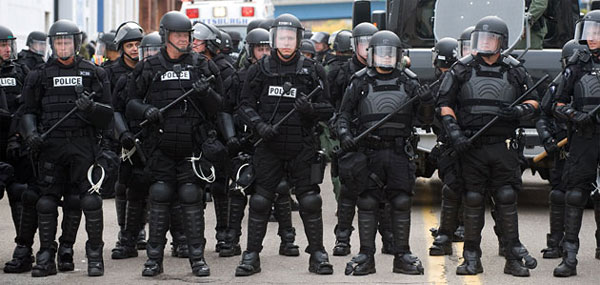
Edward Snowden has been vindicated.
This week marks the first time that a court – a real court, not a sick joke of a kangaroo tribunal like the FISA court, which approves every government request and never hears from opponents – has ruled on the legality of one of the NSA’s spying programs against the American people.
Verdict: privacy 1, police state 0.
Yet the police state goes on. Which is what happens in, you know, a police state. The pigs always win.
A unanimous three-judge ruling by the US Court of Appeals for the Second Circuit, in New York, states unequivocally that the Obama Administration’s interpretation of the USA Patriot Act is fatally flawed. Specifically, it says, Congress never intended for Section 215 to authorize the bulk interception and storage of telephony metadata of domestic phone calls: the calling number, the number called, the length of the call, the locations of both parties, and so on. In fact, the court noted, Congress never knew what the NSA was up to before Snowden spilled the beans.
On the surface, this is good news.
It will soon have been two years since Snowden leaked the NSA’s documents detailing numerous government efforts to sweep up every bit and byte of electronic communications that they possibly can — turning the United States into the Orwellian nightmare of 1984, where nothing is secret and everything can and will be used against you. Many Americans are already afraid to tell pollsters their opinions for fear of NSA eavesdropping.
One can only imagine how chilling the election of a neo-fascist right-winger (I’m talking to you, Ted Cruz and Scott Walker) as president would be. Not that I’m ready for Hillary “privacy for me, not for thee” Clinton to know all my secrets.
Until now, most action on the reform front has taken place abroad, especially in Europe, where concern about privacy online has led individuals as well as businesses to snub American Internet and technology companies, costing Silicon Valley billions of dollars, and accelerated construction of a European alternative to the American dominated “cloud.”
Here in the United States, the NSA continued with business as usual. As far as we know, the vast majority of the programs revealed by Snowden are still operational; there are no doubt many frightening new ones launched since 2013. Members of Congress were preparing to renew the disgusting Patriot Act this summer. One bright spot was the so-called USA Freedom Act, which purports to roll back bulk metadata collection, but privacy advocates say the legislation had been so watered down, and so tolerant of the NSA’s most excessive abuses, that it was just barely more than symbolic.
Like the Freedom Act, this ruling is largely symbolic.
The problem is, it’s not the last word. The federal government will certainly appeal to the U.S. Supreme Court, which could take years before hearing the case. Even in the short run, the court didn’t slap the NSA with an injunction to halt its illegal collection of Americans’ metadata.
What’s particularly distressing is the fact that the court’s complaint is about the interpretation of the Patriot Act rather than its constitutionality. The Obama Administration’s interpretation of Section 215 “cannot bear the weight the government asks us to assign to it, and that it does not authorize the telephone metadata program,” said the court ruling. However: “We do so comfortably in the full understanding that if Congress chooses to authorize such a far-reaching and unprecedented program, it has every opportunity to do so, and to do so unambiguously.”
Well, ain’t that peachy.
As a rule, courts are reluctant to annul laws passed by the legislative branch of government on the grounds of unconstitutionality. In the case of NSA spying on us, however, the harm to American democracy and society is so extravagant, and the failure of the system of checks and balances to rein in the abuses so spectacular, that the patriotic and legal duty of every judge is to do whatever he can or she can to put an end to this bastard once and for all.
It’s a sad testimony to the cowardice, willful blindness and lack of urgency of the political classes that the New York court kicked the can down the road, rather than declare the NSA’s metadata collection program a clear violation of the Fourth Amendment’s right to be free from unreasonable search and seizure.
(Ted Rall, syndicated writer and the cartoonist for The Los Angeles Times, is the author of the new critically-acclaimed book “After We Kill You, We Will Welcome You Back As Honored Guests: Unembedded in Afghanistan.” Subscribe to Ted Rall at Beacon.)
COPYRIGHT 2015 TED RALL, DISTRIBUTED BY CREATORS.COM

